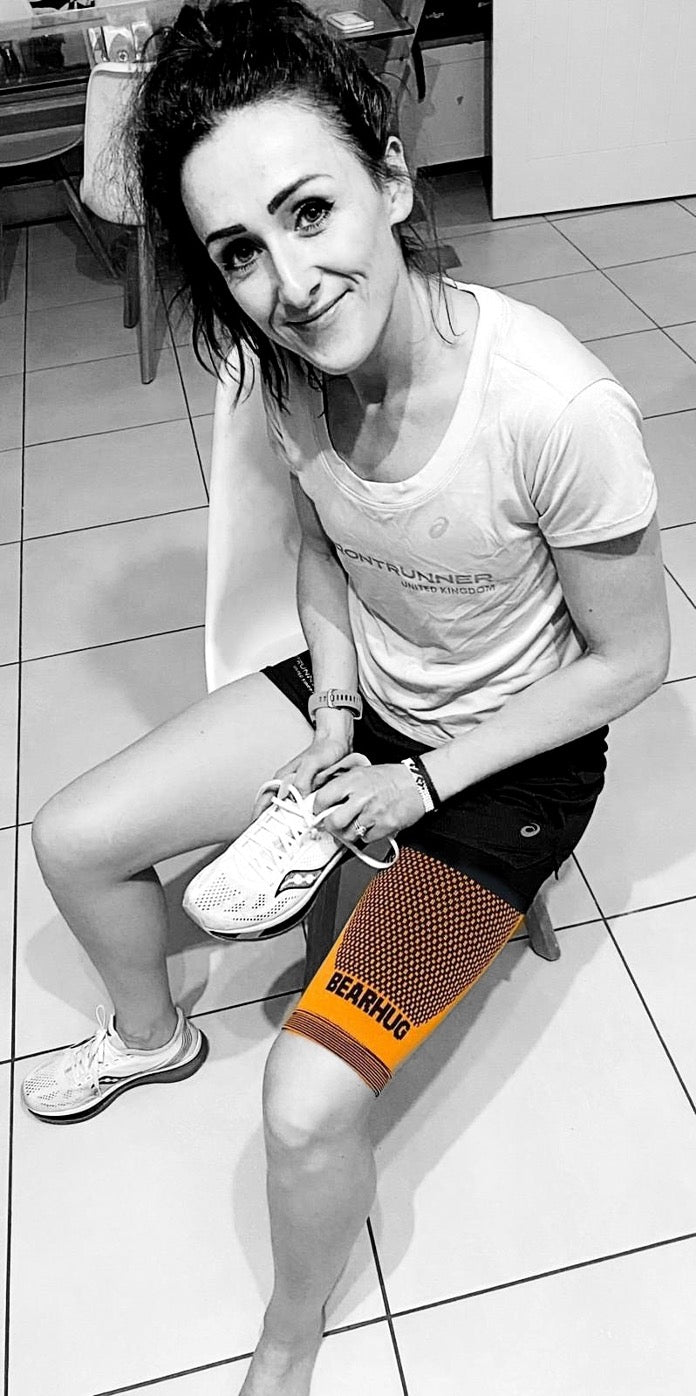
Thigh Injuries
, by Alexander Davies, 5 min reading time

, by Alexander Davies, 5 min reading time
Thigh pain and injuries are a far more common occurrence than people might think. With this area being an incredibly muscular part of the leg, there’s plenty of chance to pick up injuries or wear and tear while taking exercise.
In sports that involve a lot of running, the thighs take a huge amount of strain, with hamstring injuries being a very common complaint in sports which require bursts of pace such as rugby or football. Though hamstring injuries or quadricep strains would generally be considered the more common causes of thigh pain, there could be other causes.
Most people who follow or take part in sport will have seen someone pull up as if they’ve been shot, and have to be immediately substituted. Many athletes have significant problems with their ability to avoid hamstring injuries, and it’s a very common injury, which could be avoided. If the correct stretches and warm ups are performed before any sport, these injuries can be easily avoided.
In short, anyone who undertakes any exercise which involves running or use of the thigh muscles; which is essentially any sport that involves standing up.
In runners, causes of thigh injuries are generally through repeated strain rather than full-on tears. These can be incredibly painful, though. Just as the calf muscles can sometimes cramp up when on a run, so can the thigh muscles, so it’s important to keep an eye out for this to avoid injury.
Hamstring strains often come about thanks to small bursts of speed, perhaps after a period of inactivity. So sports which involve short bursts of intense activity such as rugby or football are very often the culprits for causing these incredibly painful injuries. These can, of course, just as with most injuries, be avoided by proper stretching and warming up.

Any heavy exercise is bound to incur some kind of soreness in the muscles, be it mild or the type that makes you walk a bit funny for days afterwards. This feeling of pain in the muscles coming on over 24 hours after exercise, is called Delayed Onset Muscle Soreness or D.O.M.S. and is usually gone by about four days following exercise
Muscle soreness usually clears up within a few days following a bout of exercise, but if you can’t wait that long then icing muscles immediately after the workout will shorten recovery time. It’s also important to stretch thoroughly before and after playing football, tennis, running or any other sport which could cause thigh muscle soreness.
The quadriceps are the muscles on the front of the thigh and are connected to the mechanism of contraction in the knee. Or in other words, when you bend your knee, the quadriceps are usually heavily involved.
In sports which involve heavy flexing of the knee mechanism, such as rugby or football, the risk of quadricep strain or even in more serious cases, a tear, rises. These can be avoided by thoroughly stretching the quads beforehand.
If they do happen, they can be incredibly painful, and the treatment is the same as it would be for any muscle injury: plenty of ice and plenty of rest. Even the treatment for a quadricep tear will be along the same lines, but if this is suspected then you should visit a doctor to get their advice. Surgery is occasionally recommended when the tear is particularly serious but non-surgical remedies are usually more effective and less of a risk.
The hamstrings are the tendons at the back of the thigh which connect the thigh muscle to the bone. Hamstring injuries are common in athletes when they over exert themselves during sports that involve running at speed. They can range in severity, from a simple strain (Grade 1) which can be fixed with a few days of rest, to a full tear (Grade 3) which may take months to heal.
People will tell you that you will know if a hamstring injury is the most serious, with some describing it as feeling like you’ve been shot. If this is the case, you may want to visit a doctor for some serious painkillers, as the over-the-counter variety may not do the trick.
Even with these most serious injuries, the advice is still the same: rest, ice and compression. The first of those won’t be difficult with a hamstring tear, as it’s unlikely you will be able to move the affected area, anyway.

Bearhug’s thigh support sleeve provides compression to the thigh, increasing blood flow to the muscles. This increased blood flow helps decrease recovery time following exercise and can assist in avoiding injury to the hamstrings or quadriceps.
When recovering from hamstring or quadricep injuries sustained while playing sports such as football or rugby, it’s important not to rush back into it too quickly. When returning to the pitch or the track, you should make sure you warm up and stretch properly beforehand, to avoid a recurrence of the injury.
A cure for most injuries, whether it’s a hamstring tear or a simple strain. Your body will usually tell you how much rest an injury will need, and you should always listen to prevent further injury.
Adding ice to an injury or even to muscle soreness can reduce the recovery time, allowing you to get back out there sooner.
Bearhug offers a thigh support sleeve, providing compression and support to help avoid pain and injury.